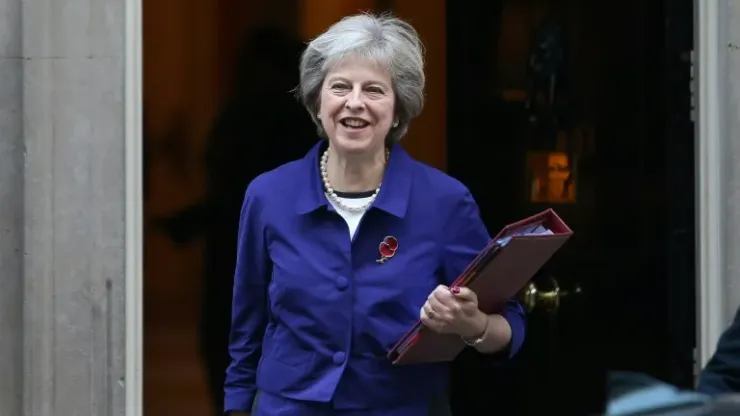London (AFP) – British Prime Minister Theresa May on Wednesday branded as “outrageous” FIFA’s opposition to England and Scotland players wearing poppies on their shirts for a World Cup qualifier on Armistice Day.
While FIFA maintained its rejection, the prime minister said FIFA should sort its own affairs out rather than interfere in tributes to a country’s war dead.
“It is utterly outrageous,” May said when asked about the matter in parliament.
“Our football players want to recognise those who gave their lives for our security.
“It is absolutely right that they should be able to do so.
“A clear message is going from this house before they (FIFA) start telling us what to do they jolly well ought to sort their own house out.”
FIFA was linked with scandal that led to its president Sepp Blatter being ousted in December. A new regime is now in place.
The English and Scottish football associations have been negotiating with the world body, which bans political, commercial and religious symbols on team outfits during matches. A FIFA statement issued Wednesday reiterated the stance.
“FIFA fully respects the significance of commemorating Remembrance Day on November 11 each year,” it said.
“The laws of the game are overseen by the International Football Association Board (composed of the four British FAs and FIFA) and applicable to all 211 member associations.
“The relevant Law 4, para. 4, clearly states that the players equipment should not carry any political, religious or commercial messages.
“The laws are applied uniformly in the event of similar requests by any member association to commemorate similar historical events.”
– Poppy petition –
England play Scotland in a World Cup qualifier at Wembley on November 11, the day when Britain traditionally remembers its war dead.
Many Britons wear red poppies as a tribute to those who have died in conflicts which have involved the country.
In 2011, FIFA agreed to let England wear a poppy symbol on black armbands when they played Spain in a friendly on November 11.
The strength of feeling against FIFA was reflected when by Wednesday nearly 200,000 people had signed a petition urging a rethink.
The petition was launched by former RAF navigator John Nichol — who was shot down with pilot John Peters and taken prisoner during the first Gulf War with Iraq in 1991.
“The poppy is not a political statement at all. It could not be further from a political statement,” said Nichol, who along with Peters was tortured while being held prisoner.
“It is a statement of remembrance and an acknowledgement of sacrifice from the First World War right through to the sacrifices of our young men and women today.
“No-one should ever be banned from wearing a poppy and it brings shame on FIFA that they continue to propagate this misunderstanding of our heritage,” added the 53-year-old.
Conservative lawmaker Damian Collins, chairman of the Commons Culture, Media and Sports Committee, told the BBC FIFA were playing a double game where the rule was good for one but not for another.
“Someone has shared with me on social media an Ireland football shirt that has a special embroidery on marking the centenary of the Easter Rising,” said the 42-year-old, a co-founder of ‘New FIFA Now’ group campaigning for reform of the world body.
“FIFA allow that, so I think people will find it astonishing that the poppy’s not allowed.”
Collins, though, has not given up hope FIFA might revise their decision.
“I hope common sense prevails,” said Collins.
“I think it is insulting to people in this country to say a poppy is one of those sort of (political) symbols.”
200+ Channels With Sports & News
- Starting price: $33/mo. for fubo Latino Package
- Watch Premier League, Women’s World Cup, Euro 2024 & Gold Cup
The New Home of MLS
- Price: $14.99/mo. for MLS Season Pass
- Watch every MLS game including playoffs & Leagues Cup
Many Sports & ESPN Originals
- Price: $10.99/mo. (or get ESPN+, Hulu & Disney+ for $14.99/mo.)
- Features Bundesliga, LaLiga, Championship, & FA Cup
2,000+ soccer games per year
- Price: $5.99/mo
- Features Champions League, Serie A, Europa League & Brasileirāo
175 Premier League Games & PL TV
- Starting price: $5.99/mo. for Peacock Premium
- Watch 175 exclusive EPL games per season






